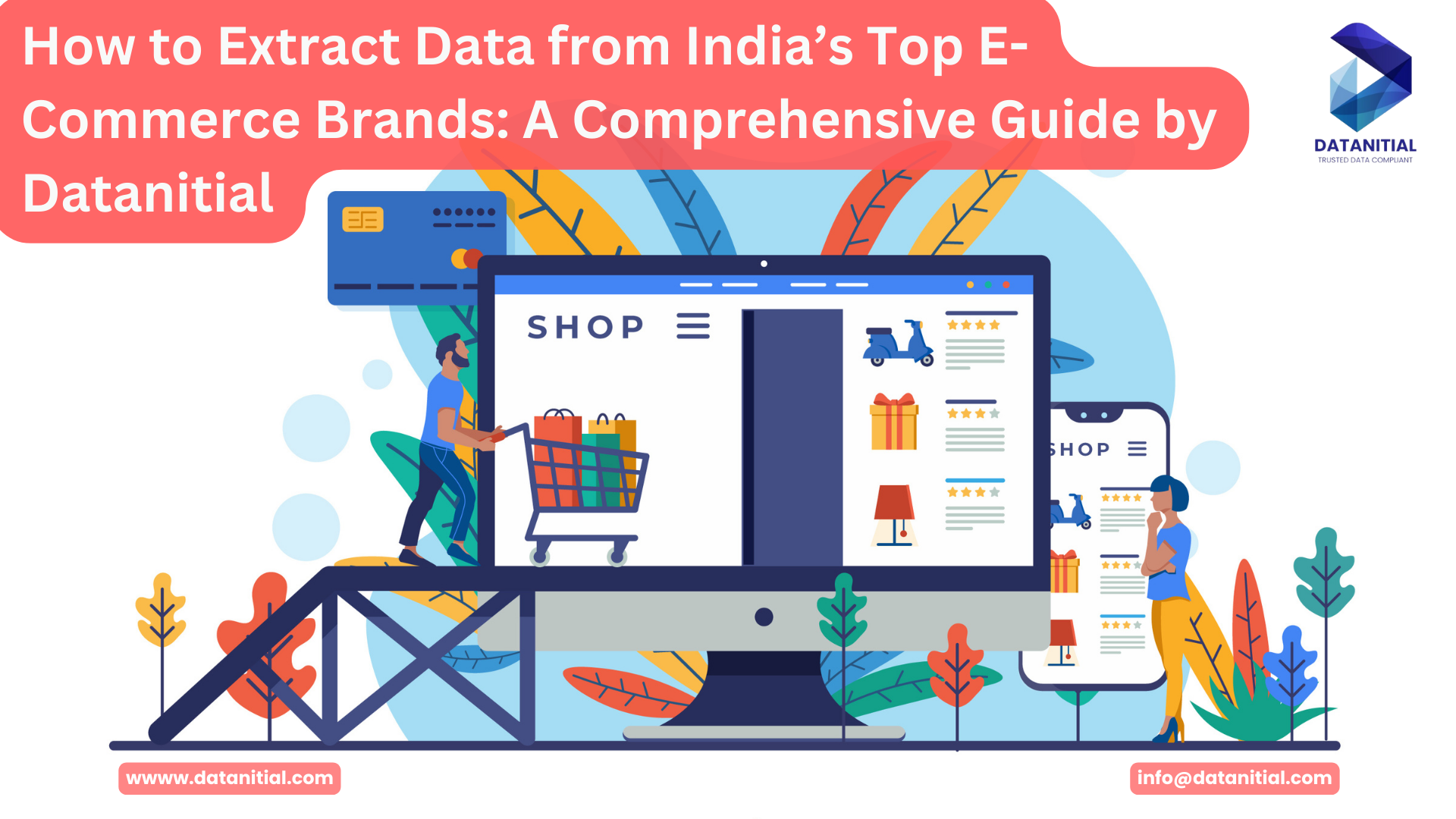Koramangala, Koramangala 8th Block, Bangalore - South, Karnataka


Koramangala, Koramangala 8th Block, Bangalore - South, Karnataka

In today's digital age, data is crucial for businesses to make informed decisions and understand market dynamics. This is particularly true for e-commerce businesses that need to analyze data from top websites to understand customer behavior and market trends. India's online market is rapidly growing, offering a wealth of valuable data for business owners to leverage for competitive advantage.
However, extracting data from India's leading e-commerce platforms can be challenging. These websites have robust security measures to protect their data. Yet, with the right approach, businesses can ethically and effectively obtain the data they need. This guide will walk you through the process of extracting data from India's top e-commerce websites.
What Is Data Extraction?
Data extraction involves retrieving useful information from various sources like databases, documents, websites, or other data formats. This process includes identifying and extracting specific data points or patterns and transforming them into a usable format.
Once extracted, this data can be combined with other data, analyzed, or used to generate reports and visualizations to support business decisions. Data extraction can be done manually or with specialized tools or software that automate the process.
Top Benefits of Data Scraping from E-Commerce Websites
Data scraping, or web scraping, involves using automated tools or bots to extract information from websites. When it comes to e-commerce websites, data scraping offers several significant benefits:
1. Price Monitoring and Dynamic Pricing
E-commerce websites frequently adjust their prices based on market conditions, stock availability, and competitors' prices. Data scraping enables you to monitor these price changes and update your pricing strategies accordingly, ensuring your prices remain competitive and maximize profit.
2. Product Information and Catalog Management
E-commerce platforms offer a vast array of products and continually update their inventories. Data scraping helps you gather essential product details such as names, descriptions, images, features, and customer reviews. This information aids in maintaining accurate and comprehensive product catalogs and inventory management.
3. Customer Sentiment Analysis
Collecting feedback and ratings from e-commerce websites allows you to analyze customer sentiment toward specific products and brands. This analysis helps identify areas for improvement and develop marketing and customer service strategies that align with customer preferences.
4. Lead Generation and Market Research
Data scraping helps you collect valuable information about potential customers, including contact details, demographics, and preferences. This data can be used to identify new customers, tailor marketing campaigns, and conduct market research, enabling you to provide personalized experiences and increase sales.
5. Price Comparison and Affiliate Marketing
By scraping data from multiple e-commerce websites, you can compare product prices across different platforms. This information can be used for affiliate marketing, allowing you to share the best deals with your audience and earn commissions on sales.
6. Trend Analysis and Demand Forecasting
Data scraping provides insights into emerging online shopping trends, such as popular products, search queries, and customer preferences. By staying updated on these trends, you can adjust your product offerings and marketing strategies to meet customer demand, ultimately driving sales and revenue.
Top Indian E-Commerce Websites
Here are the top Indian e-commerce websites:
1. Amazon India
Amazon India is one of the largest and most popular e-commerce platforms in India, offering a wide range of products across various categories, including electronics, fashion, home appliances, books, and more. It also provides services like Amazon Prime for fast delivery and exclusive deals.
2. Flipkart
Flipkart is a leading e-commerce platform in India, initially starting as an online bookstore and expanding to offer a variety of products, including electronics, fashion, home decor, beauty products, and more. It is known for its customer-friendly policies and competitive pricing.
3. Snapdeal
Snapdeal is a popular online shopping platform in India, offering a wide range of products, including electronics, clothing, home goods, and more. It provides a marketplace for sellers to reach a broad customer base.
4. Myntra
Myntra specializes in fashion and lifestyle products, offering a vast selection of clothing, footwear, accessories, and beauty products for men, women, and kids. It collaborates with numerous popular national and international brands.
5. Paytm Mall
Paytm Mall, operated by Paytm, one of India's largest digital payment providers, offers a variety of products, including electronics, fashion, home goods, appliances, and more.
6. Ajio
Ajio focuses on fashion, offering a wide range of clothing, footwear, accessories, and beauty products from national and international brands.
7. Nykaa
Nykaa specializes in beauty and personal care products, offering a vast collection of cosmetics, skincare, haircare, fragrances, and wellness products from various brands.
How to Scrape Data from the Top Sites
One of the most efficient ways to scrape data from these top sites is to enlist the help of a reputable e-commerce web scraping service provider. Datanitial specializes in extracting data from top Indian e-commerce websites like Amazon and Flipkart. We offer accurate and timely scraping services, providing detailed product information from these platforms.
Conclusion
In conclusion, extracting data from India's leading e-commerce websites can provide valuable insights for businesses and researchers. By using techniques like web scraping and adhering to ethical guidelines, we can obtain a wealth of information on consumer behavior, market trends, and competitor activities.
With careful planning and the right tools, data extraction from India's top e-commerce platforms can offer significant benefits, helping businesses make better decisions and stay ahead of the competition. However, it is essential to respect the websites' terms of service and data privacy laws, using the data responsibly and legally.